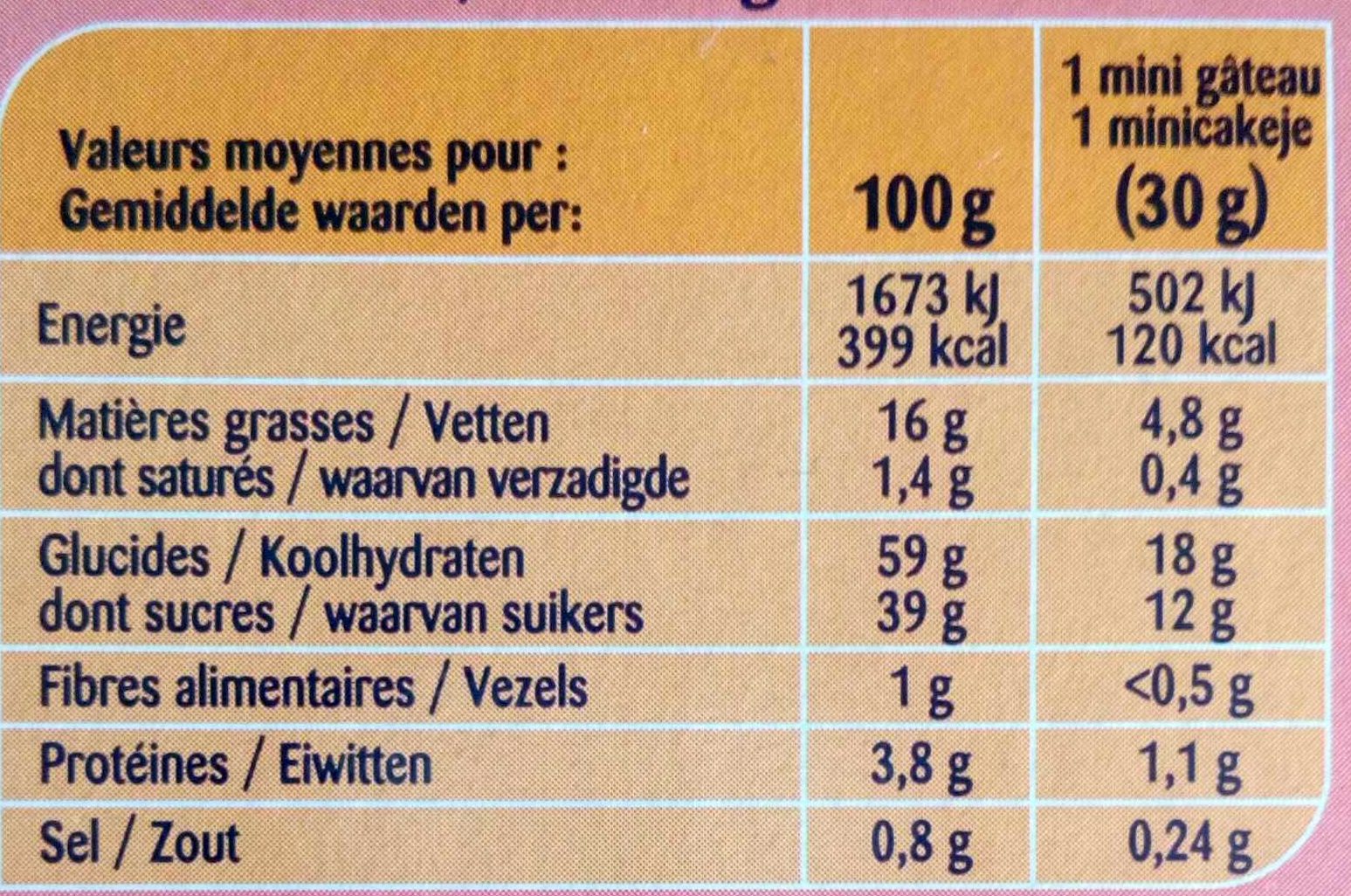Mini pocket fourrage a la fraise - Carrefour Kids - 150 g
Important note: this product is no longer sold. The data is kept for reference only. This product does not appear in regular searches and is not taken into account for statistics.
This product page is not complete. You can help to complete it by editing it and adding more data from the photos we have, or by taking more photos using the app for Android or iPhone/iPad. Thank you!
×
Some of the data for this product has been provided directly by the manufacturer Carrefour.
Barcode: 3245414259034 (EAN / EAN-13)
Common name: Petits gâteaux avec un fourrage (30%) à la fraise aromatisé
Quantity: 150 g
Packaging: Plastic, Bag, Box, Cardboard
Brands: Carrefour Kids, Carrefour
Categories: Snacks, Sweet snacks, Biscuits and cakes, Cakes, Filled cakes
Labels, certifications, awards:
Green Dot, Made in France
Origin of the product and/or its ingredients: Ces mini gâteaux sont fabriqués en France, à partir de blé français et de fourrage à la fraise fabriqué en France.
Producer: Fabriqué en France par EMB 29102 pour Interdis
Manufacturing or processing places: France, Bretagne
Traceability code: EMB 29102 - Landeleau (Finistère, France)
Stores: Carrefour
Matching with your preferences
Other information
Other information: Fourrage à la fraise Blé origine France Fabriqué en France Gros picto x5
Conservation conditions: À conserver à l'abri de la chaleur et de l'humidité. Pour une dégustation optimale, à consommer de préférence avant fin/le : voir sur le côté du paquet.
Customer service: Interdis - TSA 91431 - 91343 MASSY Cedex - France
Report a problem
Data sources
Product added on by shizuma
Last edit of product page on by org-carrefour.
Product page also edited by beniben, carrefour, ecoscore-impact-estimator, gonzague, moon-rabbit, openfoodfacts-contributors, packbot, quechoisir, teolemon.













